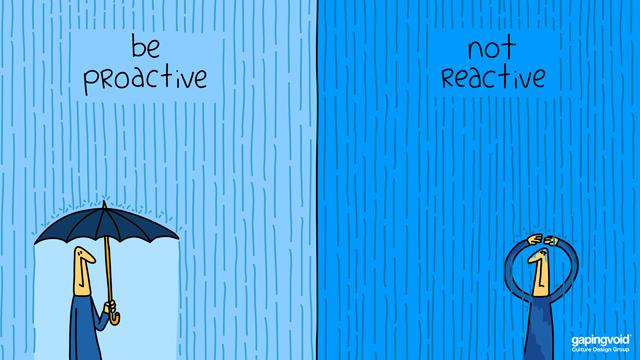When we face the inevitable uncertainties of life, there are two distinct ways we can respond: reactively or proactively. The reactive approach is probably the most common, as it’s our instinct to respond to life’s challenges based on our initial, emotional impressions. But this approach often leads to irrational decisions, self-inflicted suffering, and stress. By allowing emotions to dictate our reactions, we turn manageable situations into catastrophes, succumbing to what I call victim mentality. This mindset makes us passive victims of external circumstances, leading to endless misery.
Relying on external factors—whether it’s other people, wealth, or status—to maintain our sense of peace is a dangerous gamble. These are all beyond our control. We can’t control whether we get the job we want, whether someone reciprocates our feelings, or whether we stay healthy. When we react emotionally to every external event, we are not actively responding to life; we are simply submitting to it, letting externalities dictate our mental and emotional state.
The Stoic philosopher Epictetus offers a vital distinction that we often forget: “The chief task in life is simply this: to identify and separate matters so that I can say clearly to myself which are externals not under my control, and which have to do with the choices I actually control.” This insight is a reminder that our peace of mind should not rest on things we cannot change. By obsessing over what’s beyond our reach, we waste energy that could be used on something within our influence.
So, what’s the solution to this reactive, self-defeating mindset? It’s to live proactively. Being proactive means accepting the circumstances we find ourselves in and working with them, not against them. Life will inevitably throw challenges and setbacks our way—punches we cannot avoid. We can’t always control the punches, but we can control whether we get back up and how we choose to proceed. Proactivity shifts our focus from what we can’t control to what we can: our actions, our mindset, and our perspective.
Epictetus again sheds light on this: “Do not spoil what you have by desiring what you have not… what you now have was once among the things you only hoped for.” This speaks to the power of gratitude and acceptance—cornerstones of a proactive mindset. By focusing on what we already have, rather than yearning for what we lack, we begin to align ourselves with reality and appreciate the present moment.
Being proactive is not just about acceptance; it’s also about adaptability. Like water, which takes the shape of whatever container it finds itself in, a proactive person adapts to every situation, flowing with life’s changes rather than resisting them. Adaptability allows us to see obstacles not as inherently negative or positive, but as opportunities for growth. This mindset shift—viewing challenges as opportunities to learn or adapt—can radically transform how we approach life. Humans, after all, are the most adaptable species on the planet. We’ve built railways, air conditioning, and shelters in harsh environments. Adaptability is our nature, yet when we let emotions override logic, we are letting life’s challenges define us instead of rising to meet them.
Whether it’s the heartbreak of a relationship ending or the loss of a job you’ve dedicated years to, the temptation to react emotionally is natural. And there’s no shame in that. But the real power lies in deciding whether we’ll stay in that state of emotional reaction—succumbing to victim mentality—or proactively adapt, seeing the experience as an opportunity to learn, grow, and become stronger because of it.
Ultimately, it’s up to us. We can either submit to life’s hardships, allowing external events to dictate our peace, or we can take charge of our own mindset, responding proactively to whatever life throws our way. The choice is always ours.

